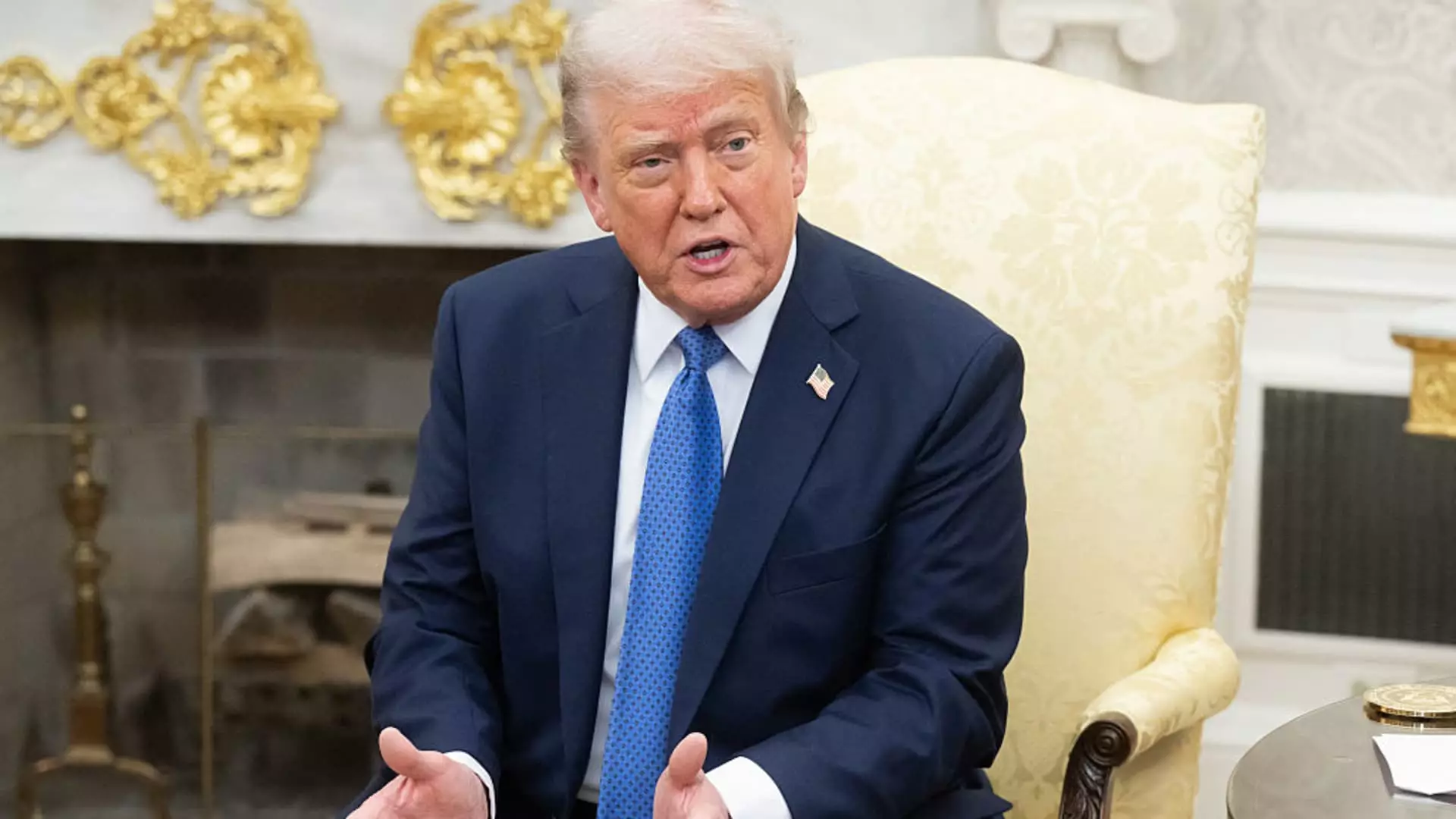In the ever-volatile landscape of American politics, Donald Trump’s statements regarding tariff policies and the bond market seem more theatrical than grounded in economic reality. His recent claim that the aggressive sell-off in the bond market did not affect his decision-making illustrates a tendency to dodge accountability. While his steadfast belief in the strength of the U.S. economy might resonate with his base, a careful analysis reveals how detachment from market realities can have grave consequences.
Trump’s declaration that he held off on imposing reciprocal tariffs to negotiate favorable terms rather than due to market pressures is a striking example of political theatrics. While he promotes the idea that his decisions are strategically crafted, the erratic nature of the markets could suggest otherwise. The bond market doesn’t just reflect investor sentiment; it mirrors the underlying economic foundation. Rising yields, especially the swift half-percentage point rise in the 10-year Treasury yield following his April “liberation day” announcement, provides a primer on the repercussions of disconnected decision-making. It is reckless to dismiss market turmoil so nonchalantly, as if ignoring the unforeseen ramifications would render them irrelevant.
Is Ignorance Bliss for Leadership?
Trump’s audacious statement about the bond market “getting the yips” while he claims to maintain cool composure raises questions about the wisdom of dismissing economic signals. The notion that a president could operate in a bubble, insulated from the day-to-day realities of the financial world, is concerning. This detachment could lead to impulsive policy decisions that benefit neither the economy nor everyday Americans. Trump’s “total victory” rhetoric, particularly in the context of potentially maintaining tariffs as high as 50%, reeks of bravado without substantive backing.
Moreover, his assertion of negotiating without welcoming other countries into direct dialogue reveals a profound misunderstanding of international relations. Effective diplomacy necessitates cooperation and engagement, not standoffish ultimatums. This reaches beyond mere diplomacy; it symbolizes a larger pattern of hot-tempered governance that prioritizes posturing over productive dialogue. The presidency cannot ignore its ripple effects; markets and international alliances do not respond positively to combative stubbornness.
The Risk of Reckless Commentary
The concern extends further when we consider the deleterious effects such profound miscalculations can have on the American public. With inflation fears on the rise and a hint of recession in the air, leaders are called to foster stability rather than uncertainty. Dismissing substantial market movements as merely “yips” not only belittles the intelligence of financial experts but also places millions of American jobs and livelihoods at stake.
Trump’s rhetoric borders on dangerously cavalier, where the existing trade agreements, vital for economic balance and American jobs, face the potential for upheaval. The insistence on high tariffs may indeed be a short-term political win, yet the longer-term implications could harm the U.S. economy, leading to higher consumer prices and stunted growth.
In a socio-political landscape where accountability is precious, the tendency to rely on bravado overshadows the need for sensible economic stewardship. In light of these considerations, it remains imperative for those in power to recognize market realities, as they are not mere abstractions but crucial indicators of a nation’s economic pulse.

